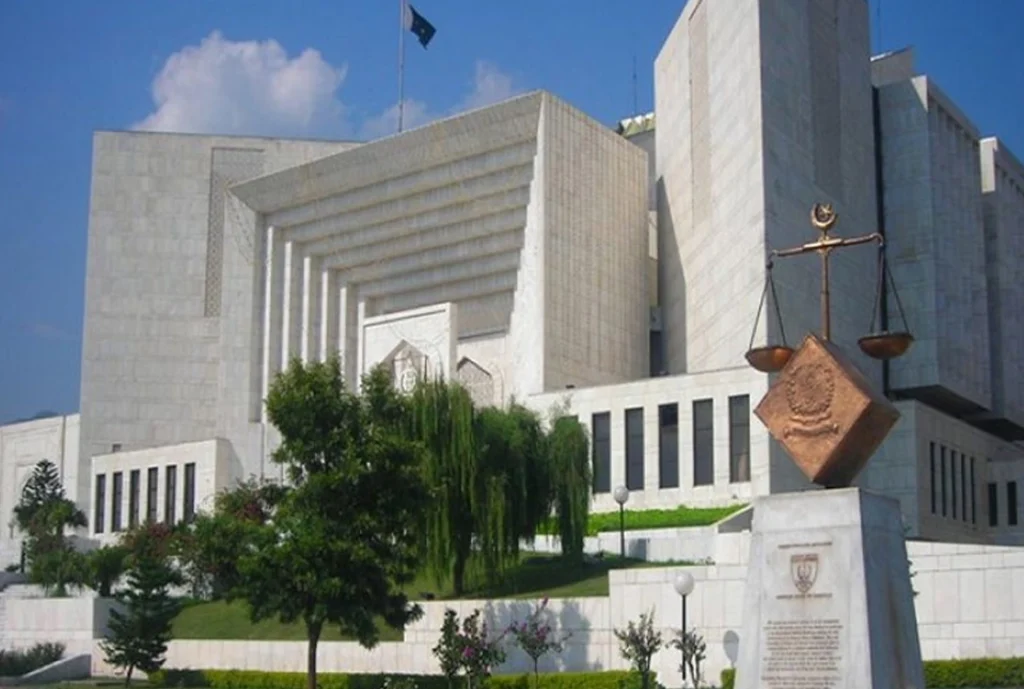- Web Desk
- Feb 19, 2026
Justice Jahangiri challenges IHC’s verdict; five IHC judges move SC
-

- Web Desk Ahsan Wahid
- Sep 19, 2025

ISLAMABAD: Justice Tariq Mahmood Jahangiri has formally challenged an order issued by the Islamabad High Court (IHC), calling for its immediate suspension on constitutional and legal grounds.
In a petition submitted to the Supreme Court, Justice Jahangiri argued that the IHC’s order unlawfully restricts a sitting judge from performing his judicial duties, which he claims is a direct violation of Article 10A of the Constitution – the right to a fair trial and due process.
Also read: Degree Vs decree: IHC suspends Justice Jahangiri from judicial duties
The petition said that the IHC directive not only undermines the independence of the judiciary but has also adversely affected the judge’s reputation. “The order has caused irreparable damage to my standing, and the time lost in judicial service due to this action cannot be compensated,” the petition reads.
Justice Jahangiri further warned that failure to suspend the IHC order would result in “irreparable loss,” stressing that the matter strikes at the core of judicial independence and procedural fairness.
FIVE JUDGES SUBMIT PETITIONS
Meanwhile, five IHC judges have filed separate petitions in the Supreme Court today, including Justice Jahangiri, Justice Mohsin Akhtar Kayani, Justice Babar Sattar, Justice Saman Rifat, and Justice Ejaz Ishaq Khan.
Petitions of these five judges are challenging what they describe as unconstitutional use of administrative authority within the judiciary.

Justice Tariq Mahmood Jahangiri filed two petitions. One against the suspension of work, challenging IHC’s previous verdict, and the other regarding the powers of the IHC Chief Justice.
All the judges have requested in their petitions that it be declared that administrative powers cannot override judicial powers. The petitions argue that IHC Chief Justice is not authorised to change the already constituted bench, and that the chief justice cannot remove available judges from the roster according to his will and cannot prevent them from performing judicial duties.
The judges also sought the Supreme Court’s intervention in declaring recent administrative actions, particularly the formation of administration committees and the approval of procedural rules, as unlawful.
The petitions have taken the position that a judge can be prevented from working only under Article 209. It should be declared that the chief justice cannot terminate the judicial powers of judges through administrative powers, nor can the chief justice transfer ongoing cases to other benches.
The petitions add that the IHC chief justice cannot remove available judges from the roster either, and can only constitute a bench under the rules made under Article 202.
Also read: Harassment committee head replaced after complaint filed against IHC chief justice
The five judges have said in their petitions that the Supreme Court has declared the theory of the Master of Roster null and void. The petitions added that the notifications of the administrative committees dated February 3 and July 15 should be declared null and void and the recent rules of the IHC should be declared illegal. “The High Court cannot issue a writ to itself under Article 199,” the petitioner judges argue.
The petition further described the 2025 Islamabad High Court Practice and Procedure Rules as unconstitutional, claiming they were approved by an improperly formed committee without the consent of the full court, in violation of the Constitution.




